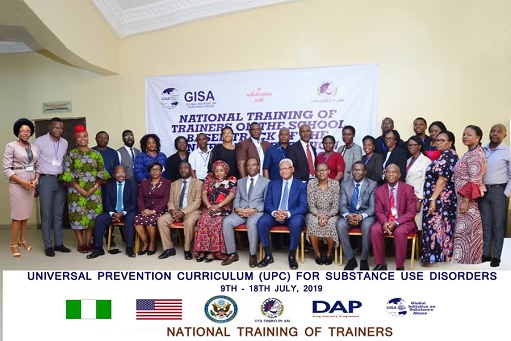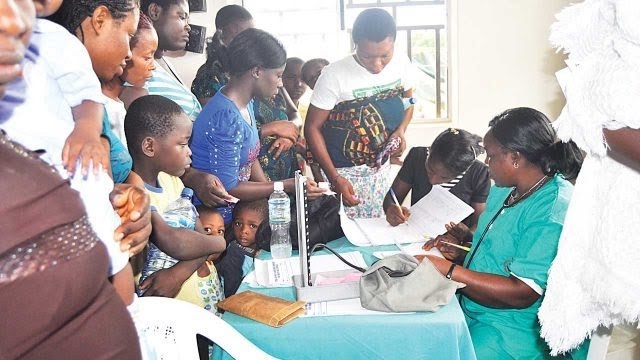‘Curbing substance abuse can promote economic growth’

Esther Taiwo
The prevalence of drug use has increased over the past five years, while the age of first use has decreased. Substance abuse in the family is a major risk factor for adolescent substance abuse.
Substance abuse and dependence are multi-factorial and multi-dimensional disorder.
Due to rapid pace of change in the economic and social sphere and prevailing political instability in the country, alcohol and other psychoactive substance use and related problems are becoming major public concerns.
Research indicates that substance use begins in youths that can be prevented and that various prevention programmes exist. However there are gaps in knowledge about the applicability of these programmes to the African context.
Following declines in the late 1980s and early 1990s, prevalence rates of alcohol and other drug (AOD) use among adolescents are increasing again.
The proportion of eighth graders using an illicit drug in the past year nearly doubled in the period from 1991 to 1995 (11% to 21%).
Almost 40% of 1995 high school seniors reported use of some type of illicit drug in the past 12 months (up from 30% in 1991).
Overall, one of every two adolescents has tried an illicit drug by the time he or she graduates from high school.
Alcohol and other drug use poses a serious threat to the health of children and adolescents.
In addition to the health risks inherent with alcohol and other drug use, substance abuse often is linked with other risk behaviors (early sexual activity, violence, academic failure, truancy/ school dropout, delinquency).
Pediatricians and other primary care providers are in an ideal position to identify substance abuse and to provide preventive guidance and education to children, adolescents, and their families.
Societal, parental neglect and negative peer influence has been described as major factors that promotes substance abuse among youths, hence all hands must be on deck to curb the spread.
This was disclosed by Public Affairs Officer, U.S Consular General, Lagos, Russell Brooks at a 9-Day ‘National Training of Trainers on the School Based Track of the Universal Prevention Curriculum (UPC) for Substance Use Disorders in Nigeria’ held at Lagos State Chamber of Commerce and Industry, Alausa, Ikeja, Lagos.
According to Brooks, who was the Special Guest of Honour at the programme, substance abuse is a global public health challenge and research shows that 40.3 million Nigerians between the ages of 16-64 years are victims of substance abuse.
“If we are concerned about the growth of Africa, then we must promote policies and programs that will reduce substance abuse in Nigeria which is said to be the most popular country in the continent” he said.
Brooks pointed out that alcohol and substance abuse can hinder a youth from achieving his goal ‘hence community based efforts, supportive parents and teachers will help discourage young people from substance abuse and improve their academic performance in readiness for the workforce” said Brook.
In his welcome address, the National Coordinator, Universal Prevention Curriculum (UPC) and Executive Director, Global Initiative on Substance Abuse (GISA), Dr. Martin Agwogie said the 9-Day Training is coming after 6 months of the first program held in January this year.
“Since the first training of trainers, 6 batches of practitioners’ training have been conducted with a total of 153 practitioners imparted in evidence based substance abuse prevention in Nigeria.
Our target is to train 2,000 practitioners in this area in the next one year, out of the 6 batches of training, one was specifically dedicated to Principals of selected secondary schools in Lagos State with 30 participants” said Agwogie.
Participants he pointed out are expected to build the capacities of practitioners who will implement evidence based substance prevention within the school system.
“They will also receive trainings on family based substance use prevention and workplace prevention with aim of building the capacities of practitioners in different areas of substance use prevention” he said.
The training according to a member, Drug Advisory Program of Colombo Plan, Kenya, Susan Mawa is in two series: the Coordinating series and the implementing series; Nigeria she revealed is said to be in the implementing series and this is the second round to be held.
Speaking on steps taken by Federal Government to ensure a drug field society, the Permanent Secretary, Federal Ministry of Education, Sunny Echonor, who was represented by the Director, Basic and Secondary Education, Federal Ministry of Education, Lami Amodu, said government is no doubt concerned about the effect of substance abuse among youths hence it has taken the bull by the horn by partnering with NGOs, CSOs and development partners in curbing it.
“To this extent we have Clubs, Societies and PTAs in our schools to ensure that pupils and students keep off drugs or rather they know the implication of substance abuse.
Also for victims of substance abuse, we also rehabilitate them and ensure that proper reintegration is carried out on them so that they can go back to school”, said Amodu.
The initiative according to the Director, Pharmaceutical Service, Lagos State Ministry of Health and Chairperson Lagos State Drug Controlled Committee, Dr. Moyosore Adejumo is timely and will help in stemming the tide of substance abuse among young ones.
Participants at the training includeed Professors, Ph.D. Holders, lecturers, clinicians in the area of medicine, Psychology and Guidance Counselling, Religious Organisations, non-governmental organisations, and civil society groups, among others.







